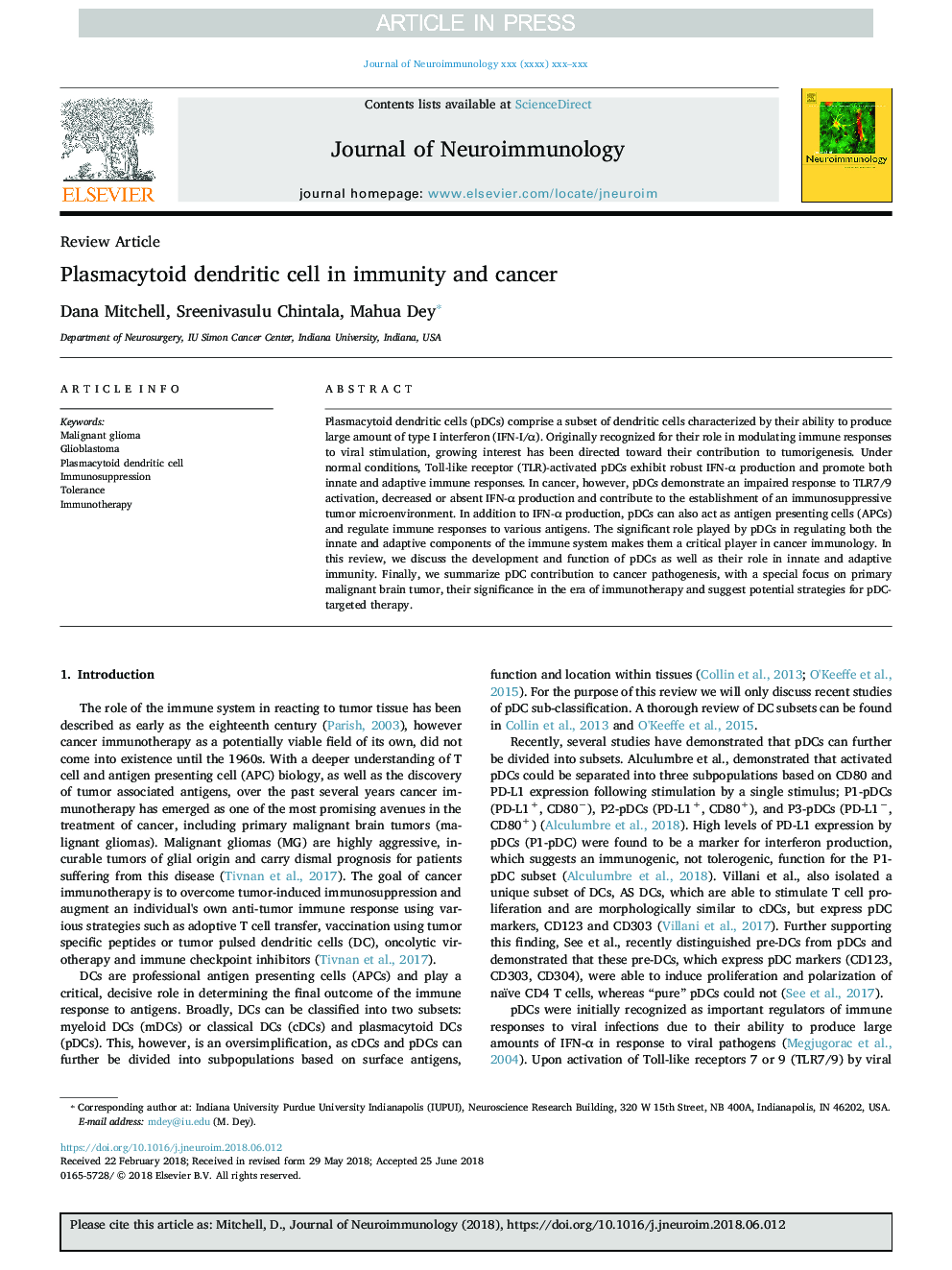| Article ID | Journal | Published Year | Pages | File Type |
|---|---|---|---|---|
| 8685645 | Journal of Neuroimmunology | 2018 | 11 Pages |
Abstract
Plasmacytoid dendritic cells (pDCs) comprise a subset of dendritic cells characterized by their ability to produce large amount of type I interferon (IFN-I/α). Originally recognized for their role in modulating immune responses to viral stimulation, growing interest has been directed toward their contribution to tumorigenesis. Under normal conditions, Toll-like receptor (TLR)-activated pDCs exhibit robust IFN-α production and promote both innate and adaptive immune responses. In cancer, however, pDCs demonstrate an impaired response to TLR7/9 activation, decreased or absent IFN-α production and contribute to the establishment of an immunosuppressive tumor microenvironment. In addition to IFN-α production, pDCs can also act as antigen presenting cells (APCs) and regulate immune responses to various antigens. The significant role played by pDCs in regulating both the innate and adaptive components of the immune system makes them a critical player in cancer immunology. In this review, we discuss the development and function of pDCs as well as their role in innate and adaptive immunity. Finally, we summarize pDC contribution to cancer pathogenesis, with a special focus on primary malignant brain tumor, their significance in the era of immunotherapy and suggest potential strategies for pDC-targeted therapy.
Keywords
Related Topics
Life Sciences
Immunology and Microbiology
Immunology
Authors
Dana Mitchell, Sreenivasulu Chintala, Mahua Dey,
